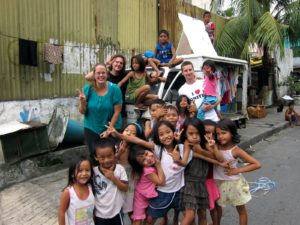Philanthropic Opportunities When Retiring To The Philippines
There has never been a shortage of philanthropic opportunities in the Philippines. Unfortunately, today, because of the harshly negative impact of the C19 virus, the lower class here in suffering on a level not experienced since World War 2.
It’s almost redundant to say that the initial task is to identify which philanthropic area is most important to you. Then determine how much you want to contribute and whether it would be on a one-time basis, or regularly. After that, you need to understand the administrative process, so you can ensure work is being done effectively and efficiently and as much, hopefully all, your funds will go directly to assist your cause.
Another important element is for you to determine what involvement you want to have in the project, or if you are comfortable providing the funds then receiving accounting reports on progress, and being provided with an understanding of how effectively your funds are being spent.
 As previously mentioned, your contribution by simply writing a check or checks to an existing organization will always be appreciated. Before you do that, it would be prudent to get objective verification in writing about how much of your contribution actually will go to support your cause. If the proposed organization cannot, or will not, provide that important information to you, then why would you want to support them?
As previously mentioned, your contribution by simply writing a check or checks to an existing organization will always be appreciated. Before you do that, it would be prudent to get objective verification in writing about how much of your contribution actually will go to support your cause. If the proposed organization cannot, or will not, provide that important information to you, then why would you want to support them?
You can always select a good cause that appeals to you and send a check to them. They do all the work and are responsible for all aspects of the project. But what we have found in that most of the philanthropists who come to live in the Philippines are more inclined to want to select their own area to focus and have significant involvement. There is no right or wrong to philanthropy, it’s all good. It’s a matter of choice determined by the level of involvement you want, or don’t want.
It could be logically argued that a philanthropist should attempt to create sustenance programs rather than support ones that might create a sense of dependency. While that may be laudable, there is an urgent need for families to eat today, not in the future. Please note, that’s not an overly dramatic statement.
It’s important to understand the barangay system in the Philippines. The barangay is defined as the smallest administrative division here. It is the native Filipino term for a village district or ward. Despite being labeled as the smallest administrative division in the Philippines, in many ways it’s the most relevant for the community. It’s at the heart of Filipino life where local and personal issues are raised on a communal basis. The barangay captain carries a high level of authority and respect. If you decide to set up your own project, nothing much will happen without the support of the relevant barangay captain.
Depending on the level of your physical commitment, you may want to form a Non-Government Organization (NGO) as your Philanthropic endeavor. This requires forming a corporation through the Security and Exchange Commission (SEC) in Manila. The process begins by you getting approval of a name from them. That, in itself, can be daunting with a complete lack of apparent logic being the norm rather than the exception. Also, Filipinos need to form majority ownership in the corporation.
But you could also be proactive and form your NGO in America or wherever you presently live. By doing that, you would increase the likelihood of donations that would be tax-deductible for the donor.
If you are religious and want to introduce Filipinos to your religious beliefs while also incorporating philanthropy, that’s an entirely possible proposition.
Catholicism is by far the prevalent religion and is an integral part of Filipino life. Muslims are predominant mainly in the southern islands.
Foreign Christian churches and organizations exist here. This confirms that non- Philippine, non-Catholic theologies are welcome. The more prominent ones have a philanthropic element whereby they provide food and education for the young while offering, but not required, participants to convert to their ideology.
Much will depend on what your goals are. In this month of September 2020 there is a greater struggle than ever for millions of Filipinos to provide even basic food such as rice for their children and families. The C19 virus has decimated the traditional work from which the lowest levels in society used to sustain themselves. While it’s laudable to want to create programs that will become sustainable, it’s today when the children need to eat. Hopefully, next year will see a return to more normalized business and social activity. Then would be a more appropriate time to consider longer-term sustenance planning.
The best way to ensure your funding is effectively spent is to be hands-on in the administration of your project or projects. If that is not what you want to do, then efficient administrators will be needed. That can also work well, but needs trust and objective verification capability.
In conclusion, there is so much you can do to make a significant difference to people here in the Philippines. An important factor is that, if you are coming from a Western country, the purchasing power of your financial contribution if it’s a US dollar or a European euro, will be many times higher when compared with its buying power in your country.
So, whether you intend to provide a little or a lot, be hands-on, or to simply financially contribute while providing you with a sense of fulfillment, the impact of your generosity will be more meaningful than you could ever imagine to the people you are helping.
Suggested Reading




